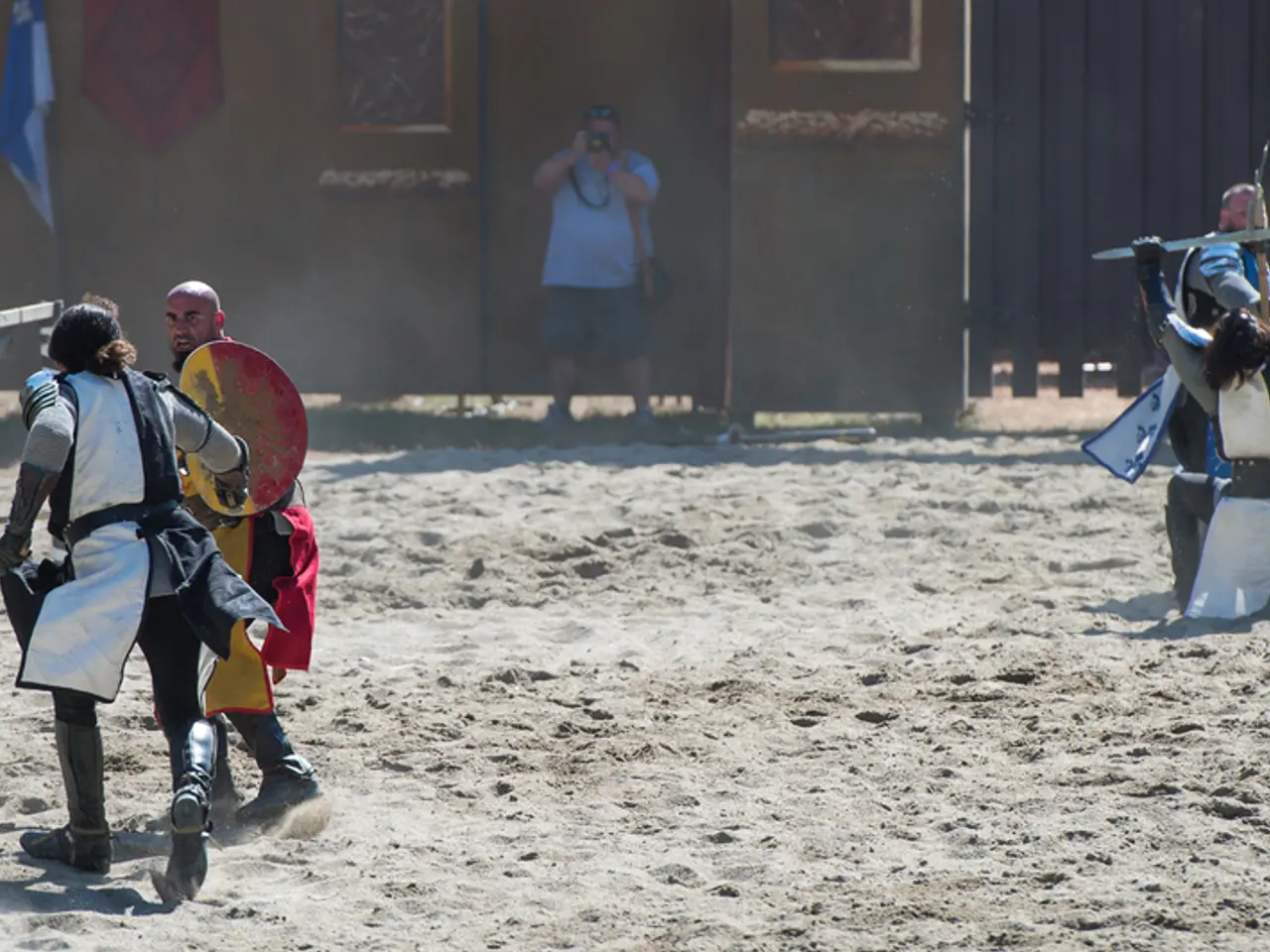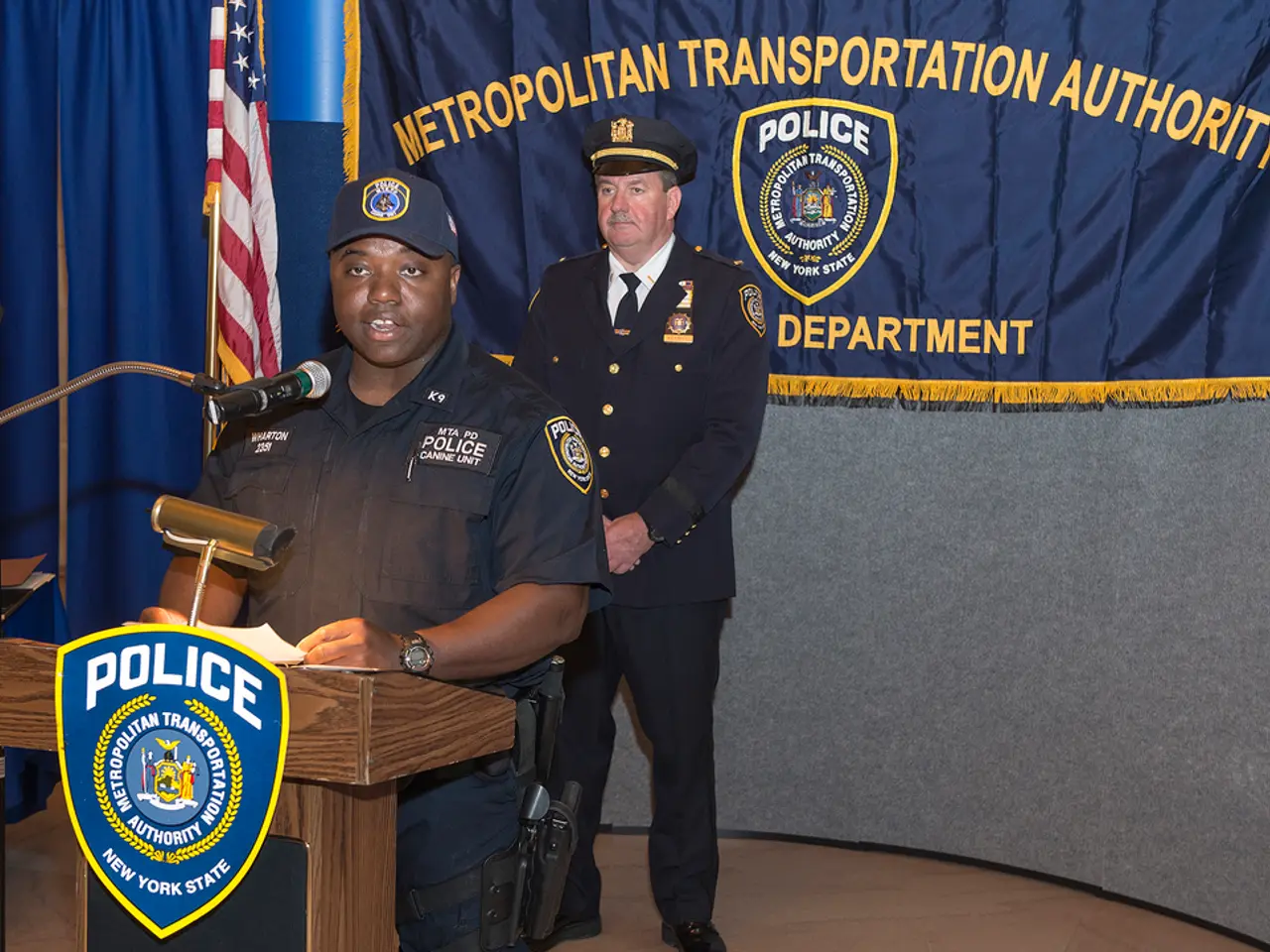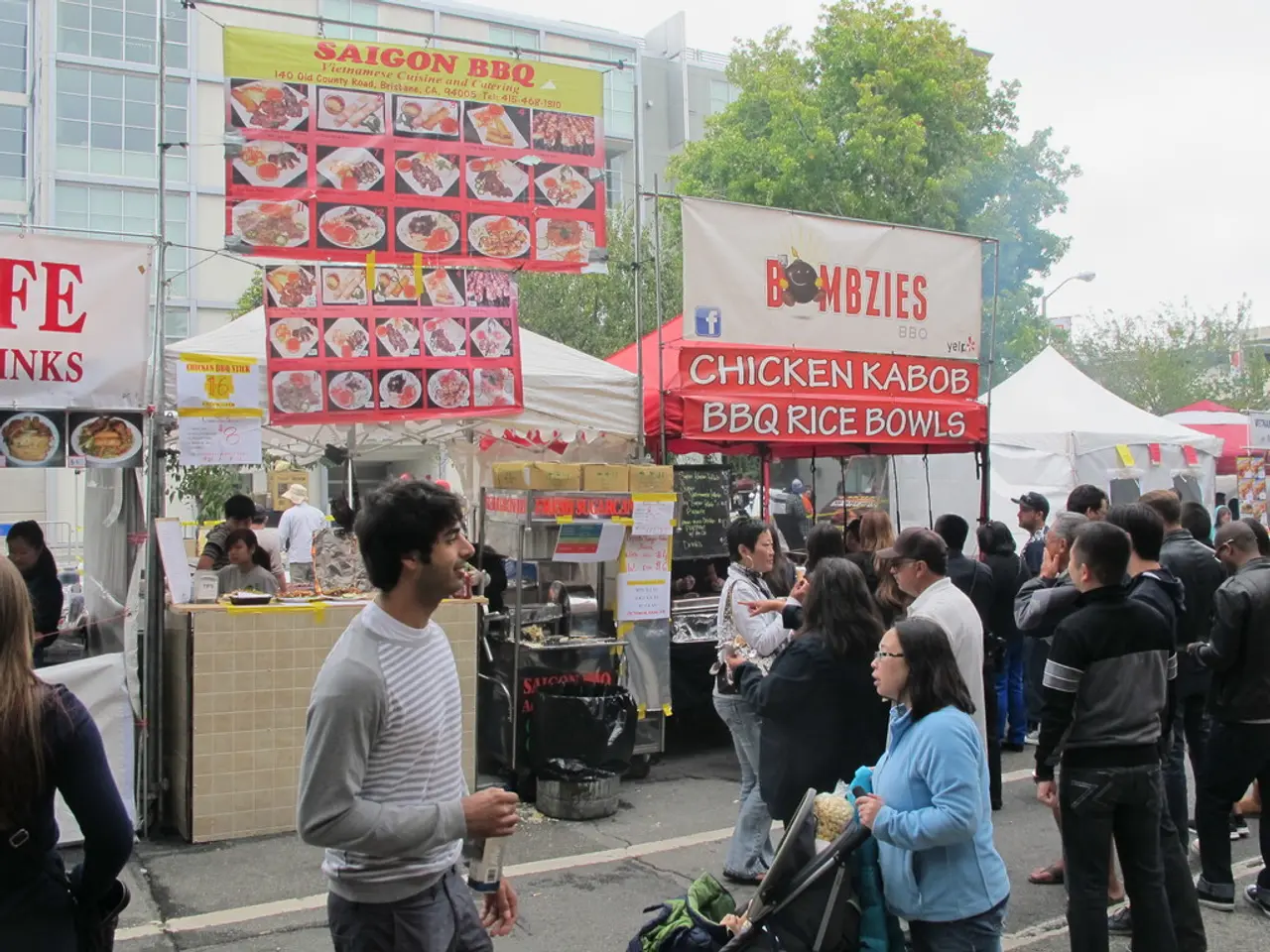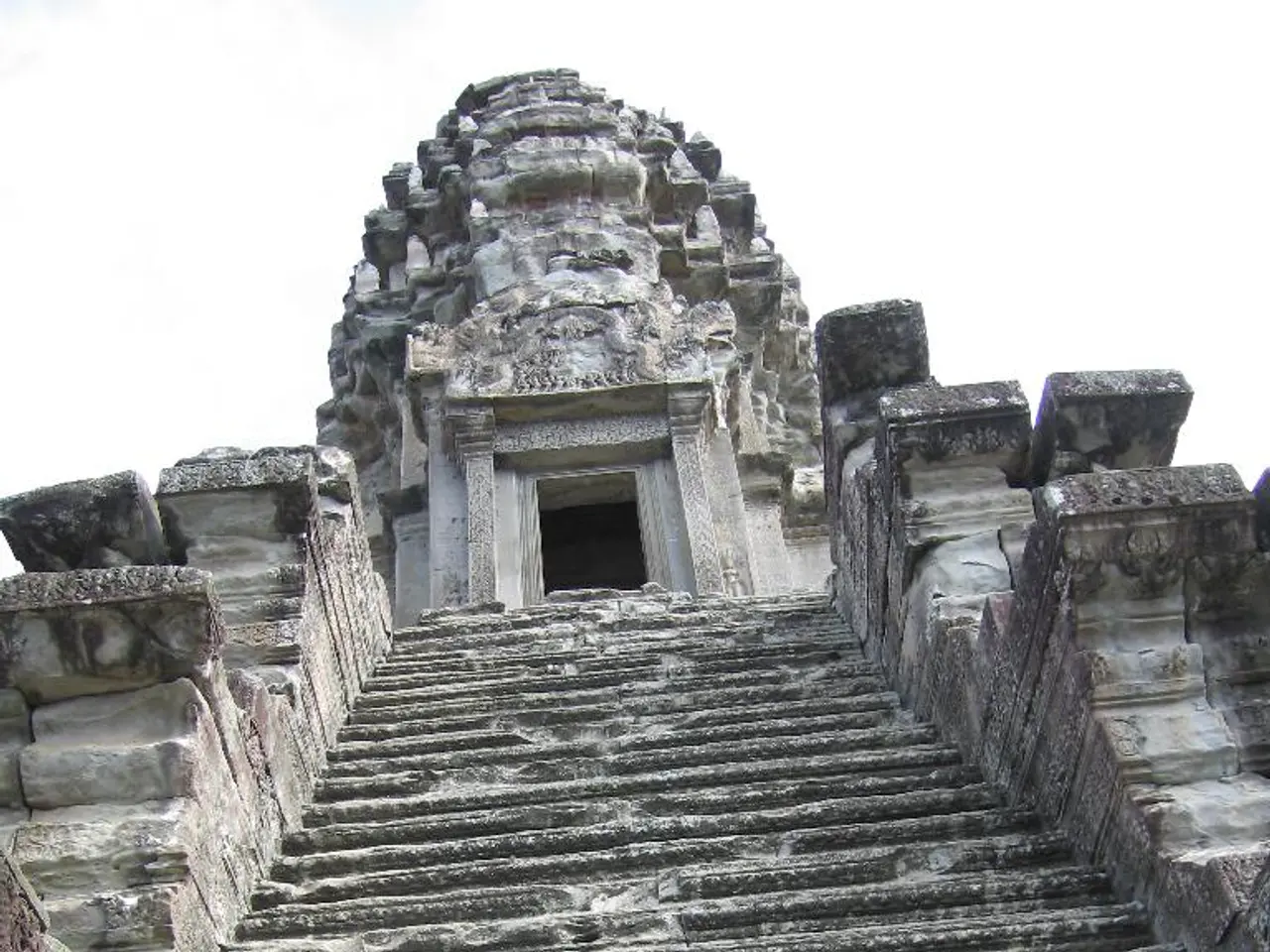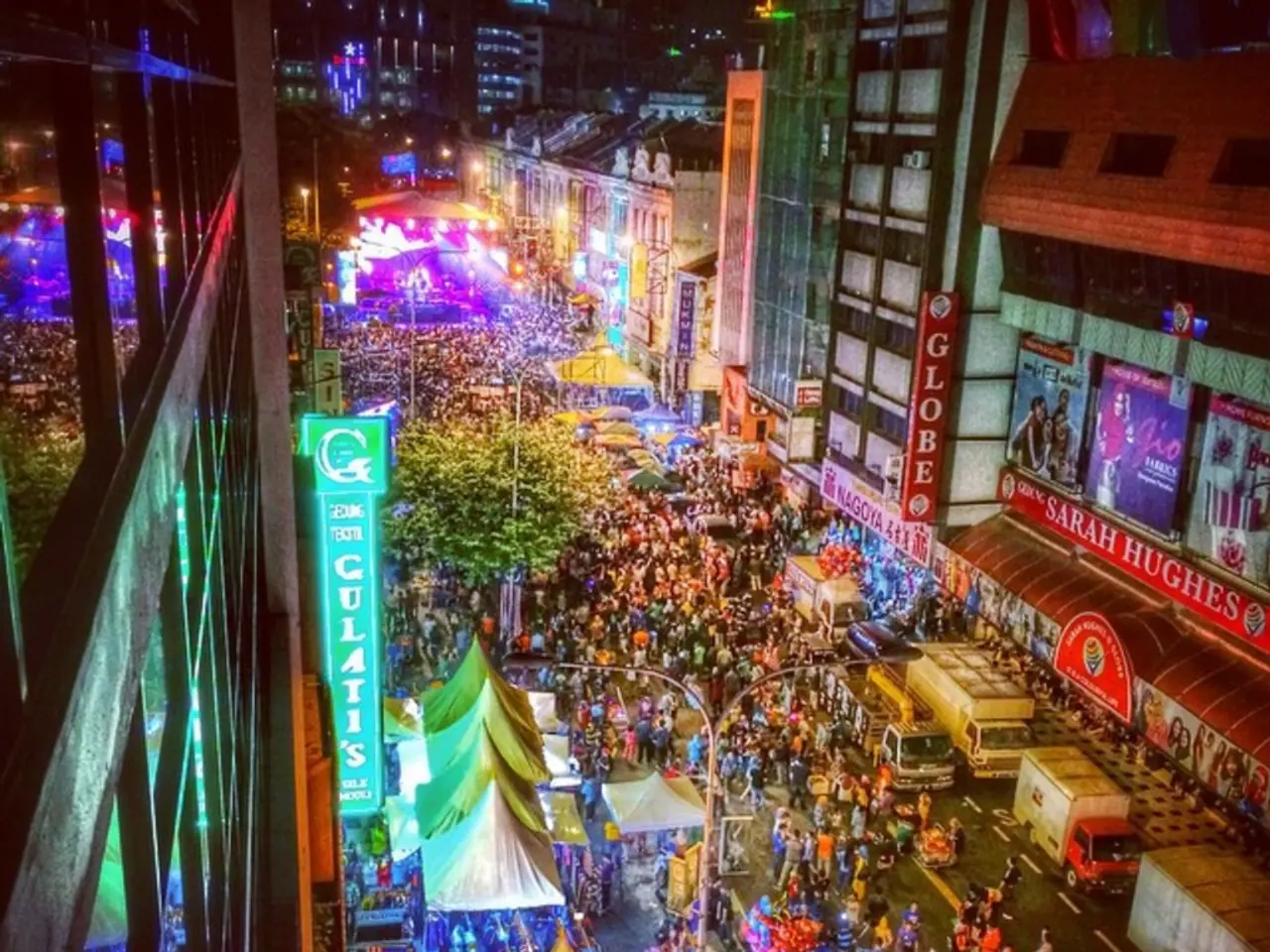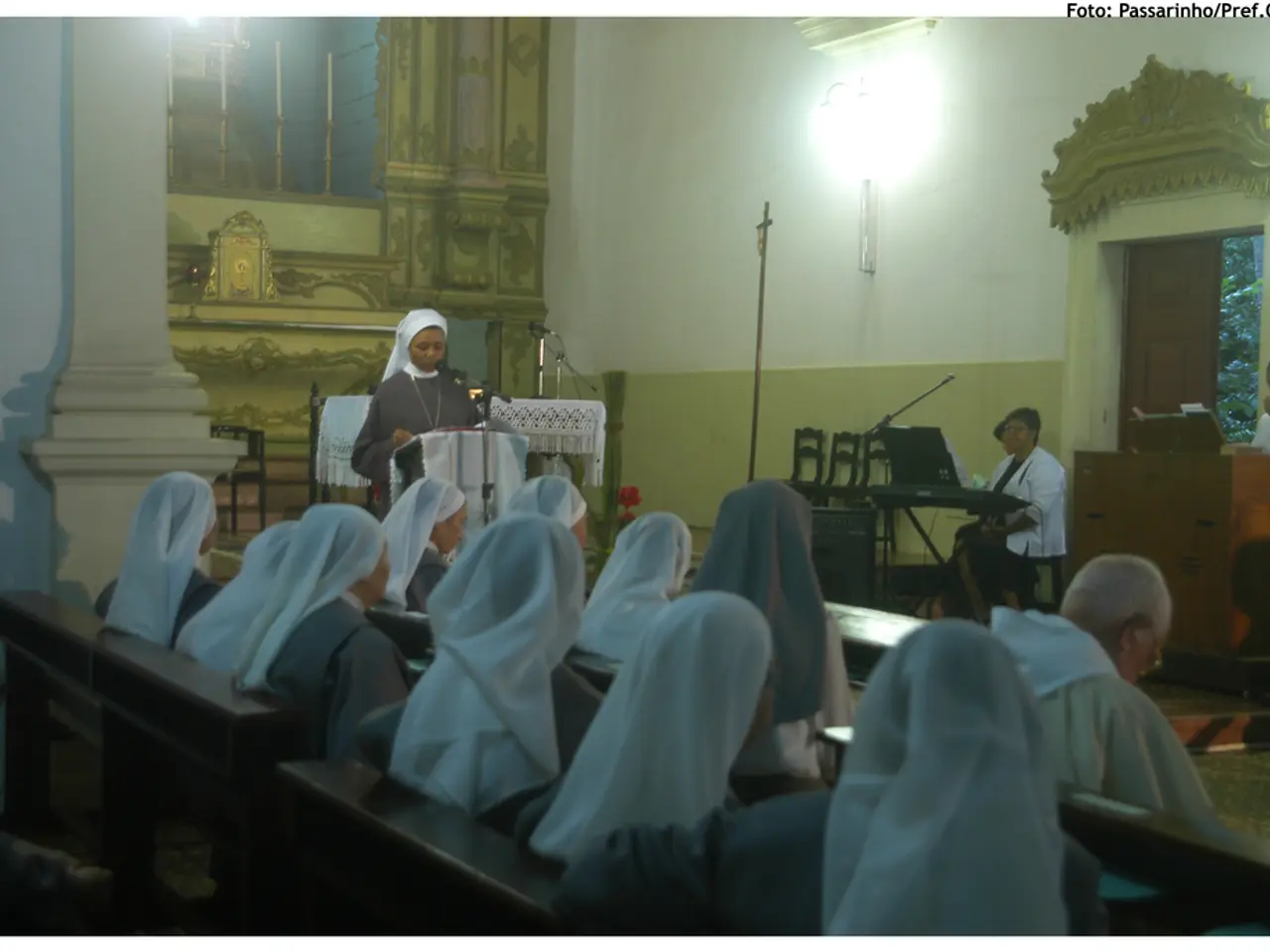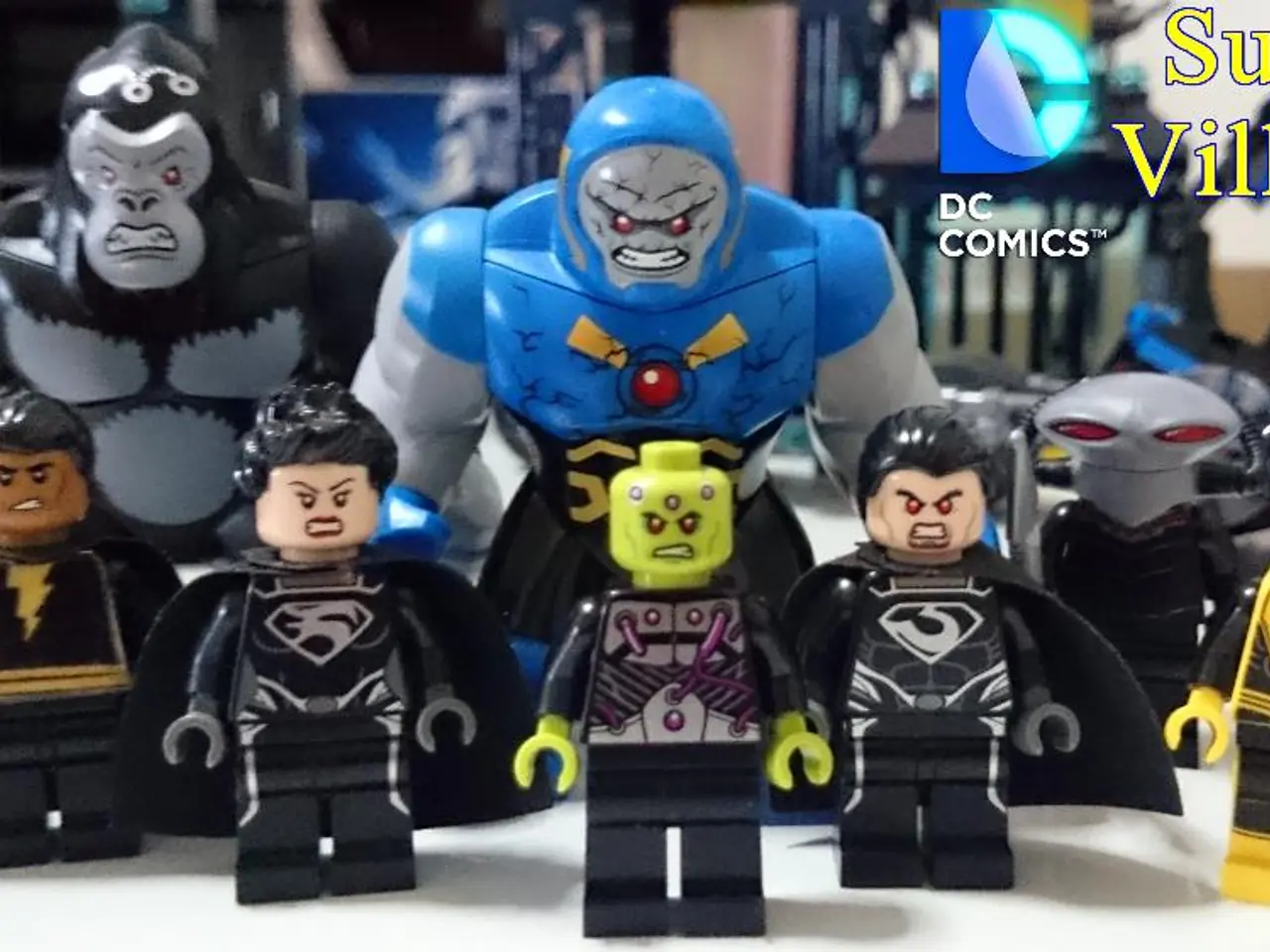Enhanced Activity of Cambodian Troops and Drones Detected by Thai Military Along the Shared Border
Tensions Escalate Between Thailand and Cambodia as Border Clashes Intensify
Border skirmishes between Thailand and Cambodia have escalated sharply since July 24, 2025, with the two Southeast Asian neighbours engaging in armed clashes, drone incursions, artillery and rocket fire, and air strikes. The incidents have deepened the dispute between the two nations, leading to diplomatic strain and martial law declarations in certain Thai border districts.
The conflict began with Thai forces detecting Cambodian drones near the Temple of Ta Muen Thom. Later that morning, Cambodian soldiers appeared near a Thai base perimeter, leading to gunfire exchanges. The fighting quickly spread across multiple border points, with both sides reporting exchanges of fire.
On July 24, Thailand reported B M-21 rocket attacks from Cambodia targeting Thai-held areas. By late morning, the Thai Royal Air Force launched F-16 air strikes on Cambodian military positions. Clashes persisted across at least 12 border locations over the following days, with artillery and rocket exchanges.
Incidents of encroachment occurred in the Chong Kan Ma, Phu Makua, and Pha Mor E-Ngae areas. In the Chong Kan Ma Area, Cambodian troops were observed deploying more troops and using drones to survey Thai positions, followed by small arms fire exchanges. In the Pha Mor E-Ngae Area, Cambodian forces used 100mm mortar fire to attack a Thai operational base, but the Royal Thai Army stated that its personnel remained safe and did not retaliate. In the Phu Makua Area, an escalation in Cambodian troop presence and drone surveillance was noted, leading to small arms engagements.
The incidents have resulted in casualties on both sides, affecting civilian areas such as hospitals and schools. Thailand has accused Cambodia of initiating hostilities through symbolic acts, trench digging, mine laying, and attacks on civilian targets. Cambodia, on the other hand, has accused Thailand of unprovoked assaults.
Diplomatic relations have soured, with the recall of ambassadors, and the international community has responded. ASEAN has called for an immediate ceasefire, and the UN Security Council has convened an emergency session on July 25. The US President announced both sides agreed to work toward a ceasefire on July 26. On July 28, Thailand and Cambodia agreed to an immediate and unconditional ceasefire during talks in Kuala Lumpur.
However, mutual distrust and unresolved territorial claims continue to challenge lasting peace efforts. Third-party arbitration is suggested but complicated by Thailand's rejection of ICJ jurisdiction since the 1960s. The conflict remains a manifestation of long-standing border disputes and nationalist tensions, complicated by familial political rivalries.
The Royal Thai Army has accused Cambodia of violating the agreed ceasefire, while the Ministry of Foreign Affairs and International Cooperation of the Kingdom of Cambodia has refuted Thailand's allegations of ceasefire violations. The incidents remain a significant concern for both nations and the international community.
- The escalating border clashes between Thailand and Cambodia have become a major focus of international news and politics, with various war-and-conflicts reports highlighting the ongoing skirmishes and diplomatic strains.
- Amidst the general-news headlines, the international community, including ASEAN and the UN Security Council, have taken significant steps to mediate the conflict between the two Southeast Asian neighbors, calling for an immediate ceasefire and convening emergency sessions to address the ongoing international war-and-conflicts in the region.
